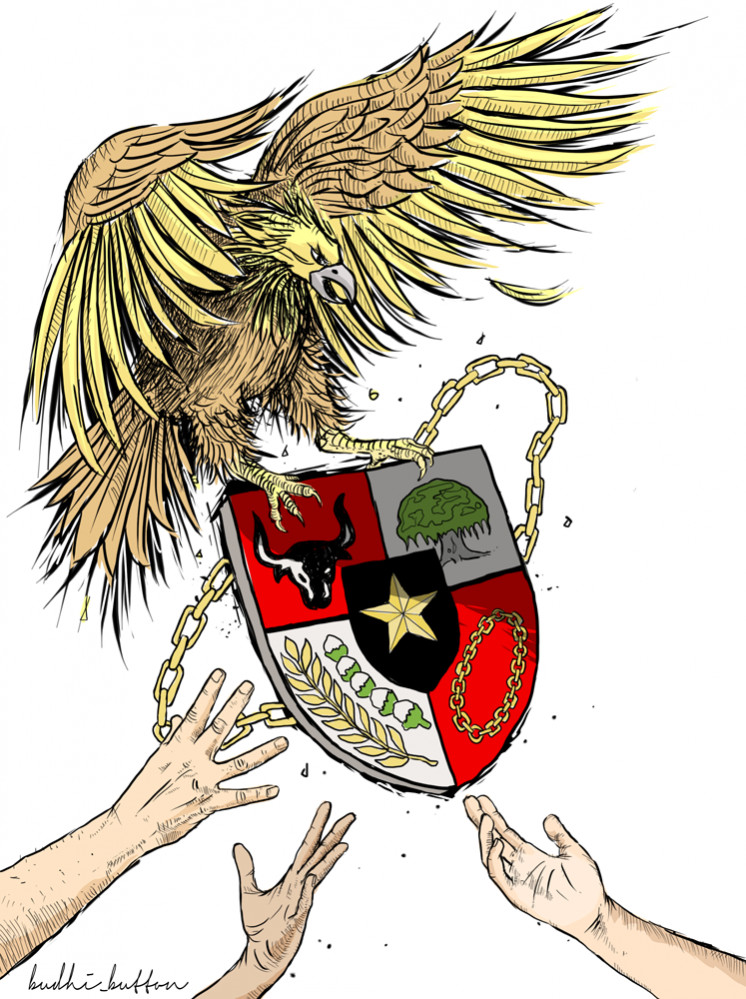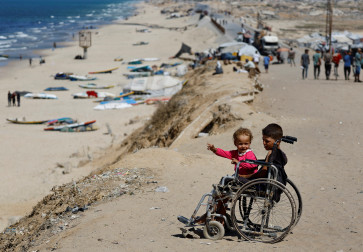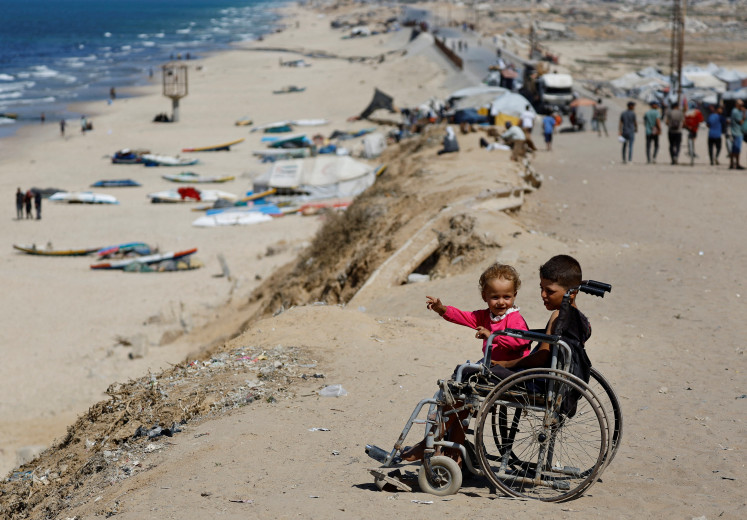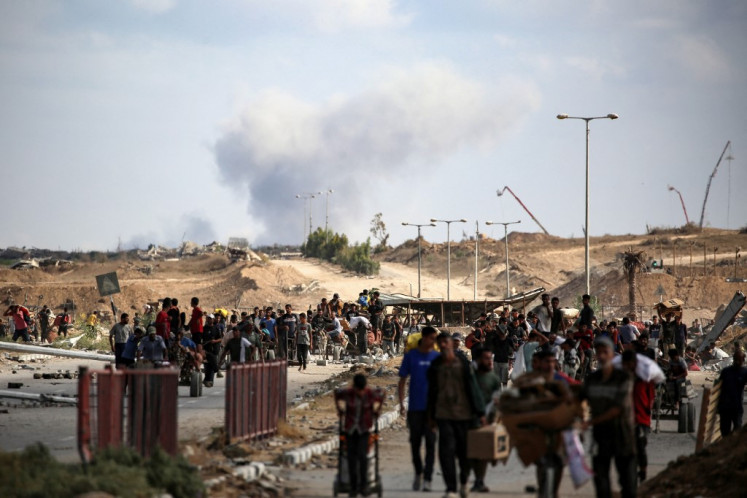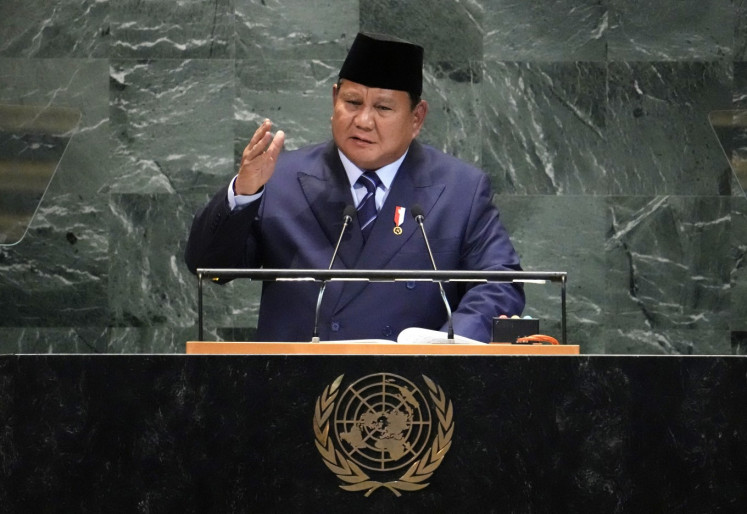Popular Reads
Top Results
Can't find what you're looking for?
View all search resultsPopular Reads
Top Results
Can't find what you're looking for?
View all search resultsEverybody loves Pancasila
But recent developments suggest that Indonesia is calling back the spirit of the New Order’s Pancasila.
Change text size
Gift Premium Articles
to Anyone
L
ike it or not, Pancasila is the founding ideology of Indonesia, although its spirit and values had already been in place long before the country was born on Aug. 17, 1945. In fact, our founding fathers chose the five pillars of Pancasila as the very foundation of the country, hence a unifying factor of this diverse nation, rather than a source of division.
While Pancasila promotes the noble principles of divinity, humanity, nationalism, democracy and social justice as the way of life of this nation, nowhere can we find justification that the state – or any group – is the most authoritative to interpret Pancasila, let alone that it may force its will on citizens when it comes to manifestation of the ideology in everyday life.
We absolutely regret the fact that once, Pancasila served as an effective instrument of uniformity, instead of unity, which those in power needed to rule the country for more than 30 years. At the beginning of the New Order era, Pancasila was glorified as a force to fight communism, before it was developed into a state ideology that protected the nation from “extreme right” elements, which refers to hard-line Muslim groups.
In the political realm, all parties aspiring to contest elections were obliged to formally pledge allegiance to Pancasila. The azas tunggal (monoloyalty) norm also applied to all mass organizations, making it easy for the government to exercise control. Democracy à la Pancasila was institutionalized as musyawarah (deliberation for consensus), which in practice was oppression of the minority by the majority.
As economic development accelerated and transformed Indonesia into an emerging market – some even called it one of the Asian tigers, Pancasila stood out to fend off those critical of the government. Dissenting views would be labeled as anti-Pancasila, which could end up in court on treason or subversion charges.
The New Order government sought every path to force its own interpretation of Pancasila on the people in a bid to cling to power as long as possible. Pancasila was taught to citizens in the form of a mandatory course, in which citizens memorized 36 behavioral norms the government claimed to represent Pancasila values.
Perhaps, had the Asian financial crisis not hit Indonesia hard, the sweeping reforms would not have resulted in a regime change and an end to the monolithic interpretation of Pancasila.
One of the glaring examples of the changes is the open space for different, if not conflicting, views. Gone now is musyawarah as political decisions are reached through voting. Leaders are elected through a one man one vote mechanism, rather than “unanimity of will” that enabled Soeharto to win six consecutive presidential terms.
The Pancasila course no longer exists, nor does the obligatory azas tunggal. But recent developments suggest that Indonesia is calling back the spirit of the New Order’s Pancasila, with government critics condemned as radicals, hence a threat to Pancasila. Even graft busters with proven track records are labeled as “Taliban”, although many of them are non-Muslims, simply because of their critical views.
As we observe Pancasila Day tomorrow, we confront an uphill challenge from those who want to turn Pancasila as an open and inclusive ideology into a closed and exclusive one, as happened in the past.

